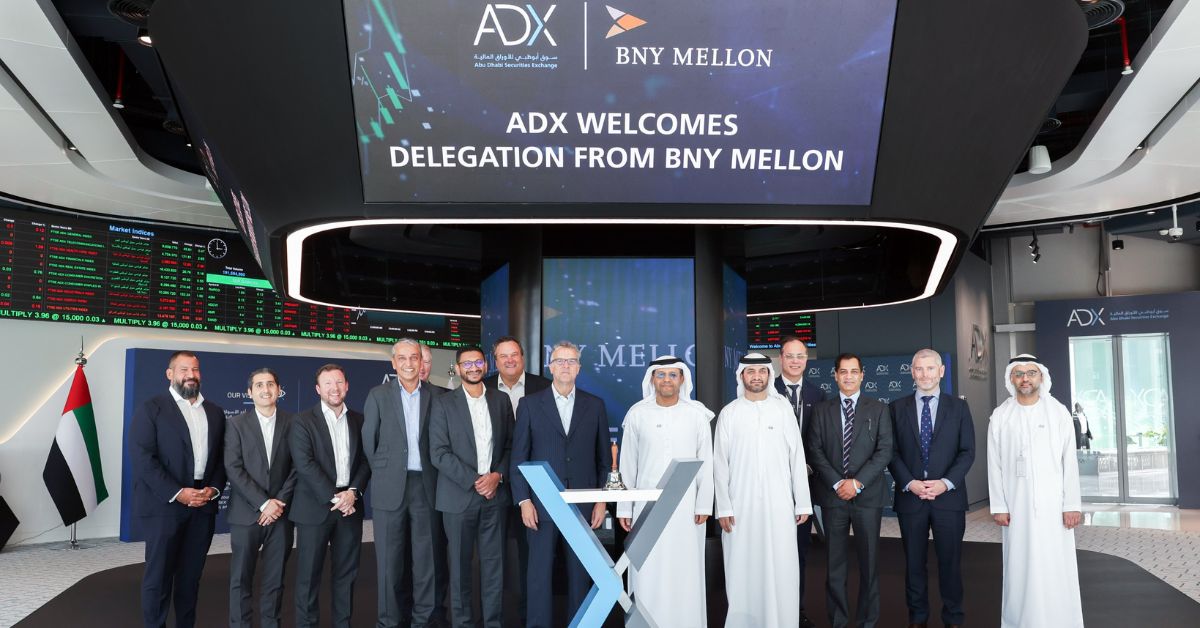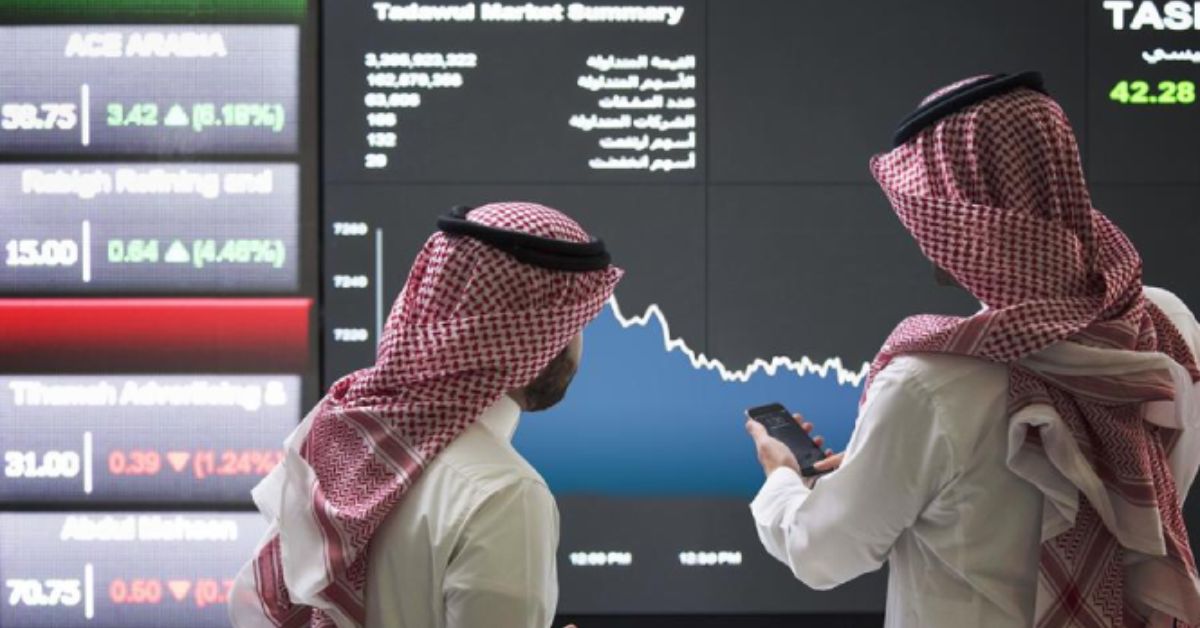DUBAI, UAE — GCC equity markets declined for the second consecutive month in September 2023, influenced by the downturn in global equity markets. This global decline was driven by investor concerns that interest rates would remain elevated for an extended period due to persistent inflation and a robust economy, making it challenging for central banks to reduce rates.
Kamco’s recent report on GCC market performance indicates that major indices, including the MSCI World Index, the S&P 500, and the MSCI GCC index, experienced downturns in September and throughout Q3 2023. The MSCI GCC index saw a 2.7 percent drop this month, erasing gains from the beginning of the year.
The year-to-date (YTD) decline now stands at 3.0 percent. The downturn in the GCC was widespread, with only the Dubai and Qatari markets posting gains for the month, while other markets saw reductions.
Saudi Arabia’s TASI was the largest monthly decliner, dropping 3.8 percent, followed by Oman and Kuwait, which declined by 2.5 percent and 1.7 percent, respectively. However, in terms of YTD 2023 performance, Dubai leads with a substantial 24.8 percent gain, followed by Saudi Arabia and Bahrain, which posted gains of 5.5 percent and 2.3 percent, respectively. The remaining GCC markets were in negative territory.
Regarding sector performance, most GCC indices were in the red in September 2023, including Banks, which fell by 3.8 percent. In contrast, a few sectors, such as Real Estate and Energy, saw gains of 2.4 percent and 1.6 percent, respectively.
Marketwatch * MSCI GCC index drops by 2.7% in September 2023. * Year-to-date decline for the MSCI GCC index stands at 3.0%. * Saudi Arabia's TASI records the largest monthly decline of 3.8%. * Oman and Kuwait markets decline by 2.5% and 1.7%, respectively. * Dubai boasts a YTD 2023 performance gain of 24.8%. * Saudi Arabia and Bahrain post YTD gains of 5.5% and 2.3%, respectively. * Banks sector in GCC falls by 3.8% in September 2023. * Real Estate and Energy sectors in GCC see gains of 2.4% and 1.6%, respectively. * TASI peaks at 11,491.20 points but closes September with a 3.8% decline. * FTSE ADX index dips by 0.3% in September 2023. * Real Estate index in Abu Dhabi rises by 7.1% due to Sharjah Group Company's 67.8% share surge. * Healthcare index in Abu Dhabi gains 5%, driven by Gulf Medical Projects (7.34%) and Burjeel Holdings (6.4%). * Consumer Staples index in Abu Dhabi drops by 6.8%. * DFM General Index sees a 2.0% gain in September 2023. * Real Estate Index in Dubai rises by 8.6%, influenced by Emaar Properties' 13.9% price surge. * Financial index in Dubai grows by 2.4% with Emirates NBD, Dubai Islamic Bank, and National General Insurance seeing gains. * Consumer Staples index in Dubai drops by 9.9%. * Emaar Properties sees a 13.9% increase in share price. * Emirates Islamic Bank records an 18.9% drop in share price. * QE 20 index in Qatar rises by 0.6% in September 2023. * YTD performance for QE 20 index shows a decline of 4.0%. * Insurance sector in Qatar grows by 9.9%. * Real Estate index in Qatar drops by 2.6%. * Boursa Kuwait sees a 1.7% decline in September 2023. * Premier Market Index in Kuwait drops by 2.3%. * Main 50 Index and Main Market Index in Kuwait gain 1.3% and 0.4%, respectively. * All-Share Index in Kuwait records the largest GCC decline at -5.6% YTD by September's end.
Saudi Arabia
Saudi Arabia’s primary equity index, TASI, reported a monthly decline in September 2023. The index reached a peak of 11,491.20 points in the first week but trended downward for the remainder of the month, closing with a 3.8 percent decline at 11,056.0 points.
Despite this, Saudi Arabia ranks second in the GCC for YTD 2023 performance with a 5.5 percent gain. This month also marked the listing of Lumi Rental in the Transportation sector and the launch of four new indices by the Saudi exchange, focusing on company size and IPO performance.
Abu Dhabi Exchange
The FTSE ADX index dipped 0.3 percent in September 2023, ending the month at 9,785.32 points. This marked its first monthly decline after three consecutive months of gains. In terms of sectoral performance, six out of ten sectors grew during the month, while the remaining four declined. The Real Estate index saw the most significant monthly gain, rising 7.1 percent, primarily due to Sharjah Group Company’s 67.8 percent share surge.
The Healthcare index followed with a 5 percent gain, driven by Gulf Medical Projects (7.34 percent) and Burjeel Holdings (6.4 percent).
On the decline side, the Consumer Staples index led with a 6.8 percent drop, followed by the Consumer Discretionary index, which fell 2.2 percent in September 2023.
In economic developments, S&P projects that the UAE economy will grow by 3 percent in 2023 and 4 percent in 2024, primarily driven by the Emirates’ non-oil sector.
The report emphasized the significance of the UAE’s travel and hospitality industries as primary contributors to the country’s economic growth. Additionally, the UAE economy is anticipated to benefit from government initiatives and technological innovations.

Dubai Financial Market
The DFM General Index saw a 2.0 percent gain in September 2023, closing at 4,163.58 points, marking its sixth consecutive monthly increase. The majority of indices reported gains during the month, with the Real Estate Index leading with an 8.6 percent rise, primarily due to Emaar Properties’ nearly 13.9 percent price surge.
The Financial index followed with a 2.4 percent increase, with significant gains from major companies like Emirates NBD (8.9 percent), Dubai Islamic Bank (3.7 percent), and National General Insurance (8.9 percent). The Consumer Staples index experienced the most significant monthly decline, dropping 9.9 percent.
According to Bloomberg’s monthly stock performance, Emaar Properties led the gainers with a 13.9 percent increase in share price, followed by Emirates NBD and National General Insurance, both with 8.9 percent gains.
On the decline side, Emirates Islamic Bank topped the list with an 18.9 percent drop, followed by Aramex and Dubai Islamic Insurance Co., which declined by 15.4 percent and 14.6 percent, respectively.
Qatar Exchange
After experiencing losses in the previous month, the Qatar Stock Exchange posted a slight gain in September 2023. The QE 20 index ended the month at 10,252.0 points, with a 0.6 percent increase, mirroring the Qatar All Share Index’s 0.6 percent gain. In terms of YTD performance, the QE 20 index was down 4.0 percent, marking the second-largest decline in the GCC, while the All Share index reported a 0.2 percent gain.
Sector performance varied during the month, with the Insurance sector leading with a 9.9 percent gain, followed by Industrials and Transportation, which grew by 6.2 percent and 3.1 percent, respectively.
Conversely, the Real Estate index was the most significant decliner, dropping 2.6 percent, followed by Banks & Financial Services and Telecom indices, which decreased by 2.4 percent and 1.4 percent, respectively.
Boursa Kuwait
Boursa Kuwait ended September 2023 with a 1.7 percent decline, closing at 6,886.7 points. Large-cap stocks, especially in the Banking sector, primarily drove this decline. In terms of market segments, the Premier Market Index saw the most significant monthly drop of 2.3 percent in September 2023, as most constituent stocks in the index decreased.
The Main 50 Index and the Main Market Index reported monthly gains of 1.3 percent and 0.4 percent, respectively. This monthly decline impacted the YTD 2023 performance, with the All-Share Index showing the most significant GCC decline at -5.6 percent by September’s end.
The Premier Market index has declined by 7.3 percent since the start of the year, while the Main 50 Index decreased by 0.2 percent, compared to a 2.2 percent gain for the Main Market Index.








